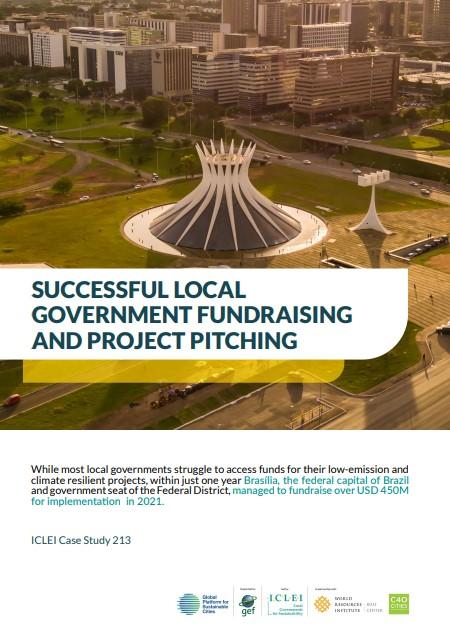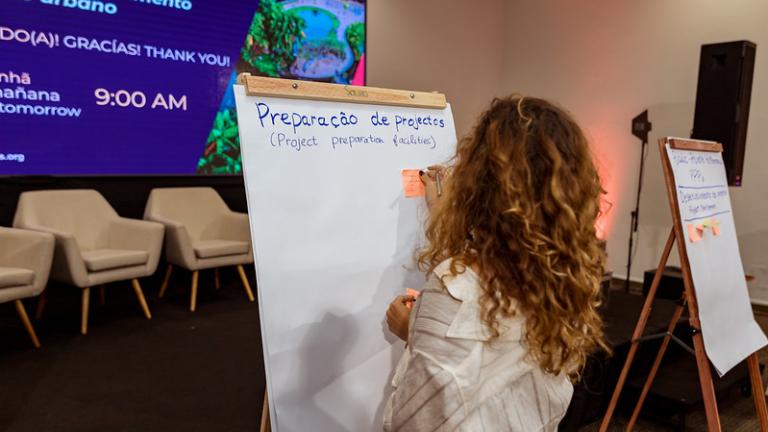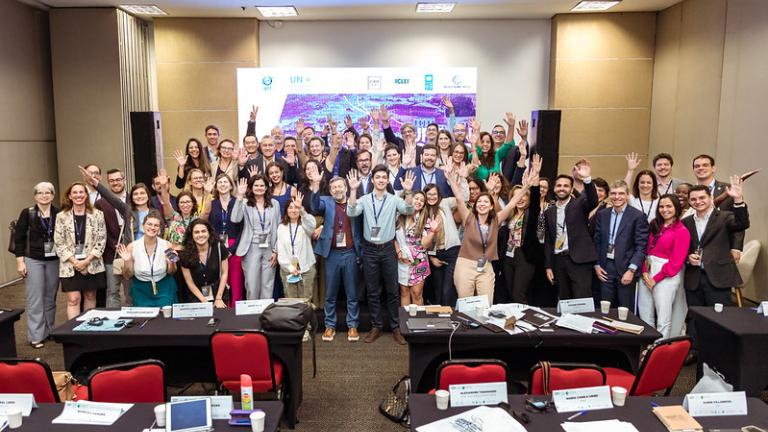Case Study

Successful Local Government Fundraising and Project Pitching
Using the example of Brasilia, the federal capital of Brazil, this case study offers practical tips on successful fundraising for climate projects.
More than half of the world’s population lives in urban areas, and 1.5 million people are added to cities every week, resulting in enormous pressure on infrastructure, services, jobs, climate, and the environment. Although significant strides have been made in making climate finance more available to local governments, accessibility of those funds remains limited. To develop robust and bankable projects, finance is needed at a very early stage, representing up to 12% of the total project cost.
This paper, produced by ICLEI, gives a brief overview of the different financial sources available to local governments and provides practical advice for fundraising and project pitching, using a case study from Brasília, which managed to raise over USD 450 million for climate-resilient projects in just one year.
READ MORE

UNEA-7 Cities and Regions Summit
Hosted in the lead-up to UNEA-7, this Summit will unite subnational leaders to strengthen collaboration and amplify the importance of cities.

Unlocking Subnational Finance for Green Sectorial Transformation: A Focus on Buildings & Cooling
Hosted during COP30 in Belém, Brazil, these dynamic panel discussions will explore strategies for enhancing access to transformative finance, and how these resources can support local climate transitions.

Sustainable Finance Action and Advocacy: A Roadmap for Global South Cities
This C40-led webinar, held alongside 4th International Conference on Financing for Development (FfD4), aimed to equip mayors with the tools they need to advocate for expanded and accelerated access to urban climate finance.

UrbanShift Looks Back: On the Value of Expanding Access to Urban Climate Finance
C40's Jessy Appavoo, ICLEI's André Almeida da Vila, and UNEP's Sharon Gil share why and how UrbanShift has prioritized support for cities to access climate finance.
